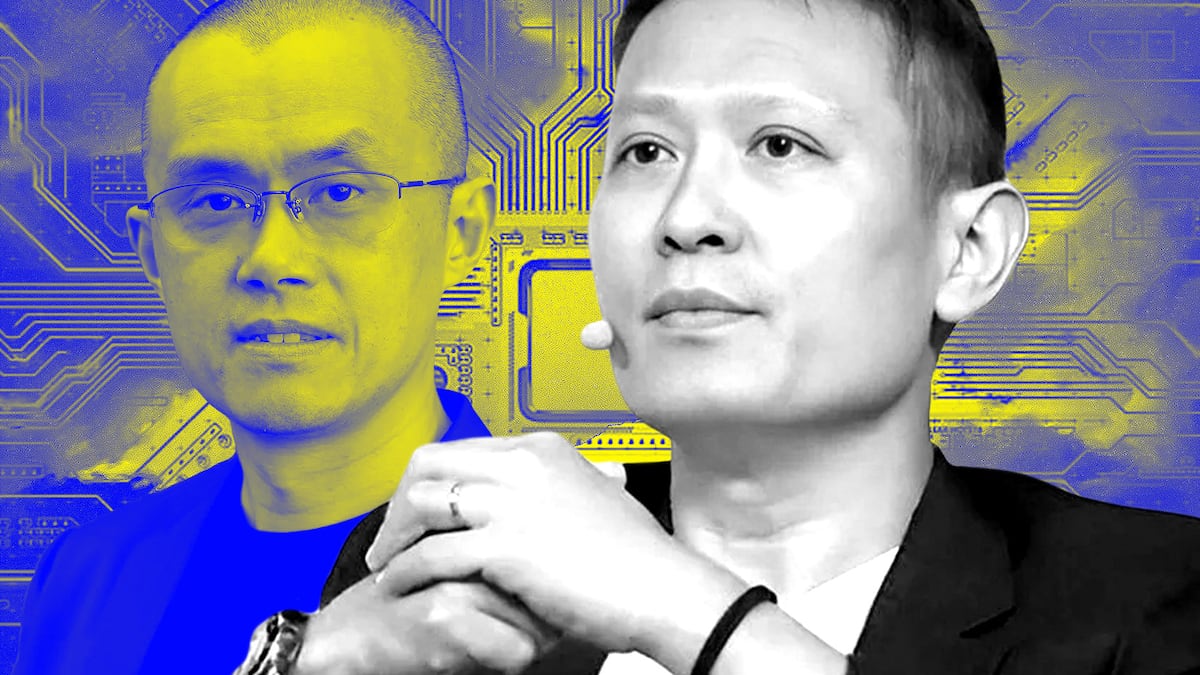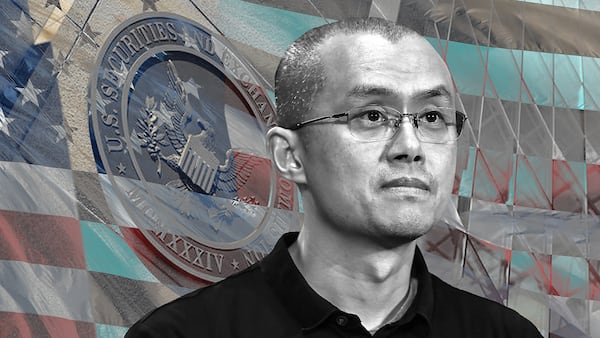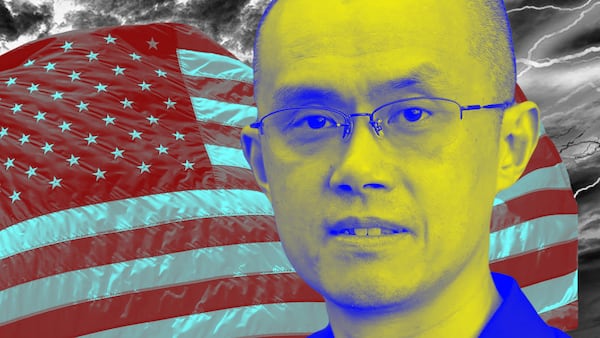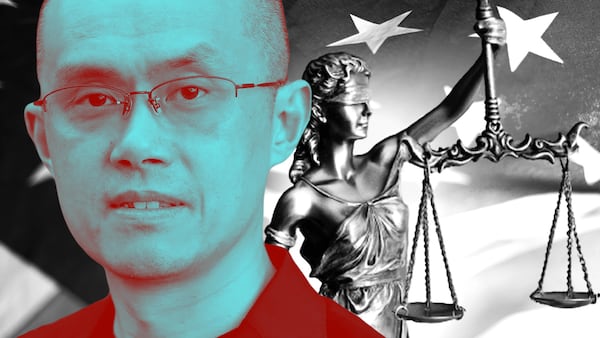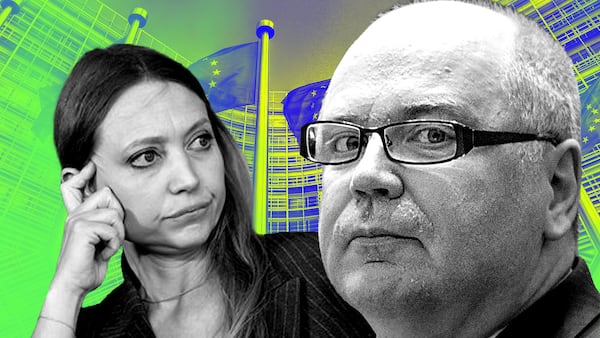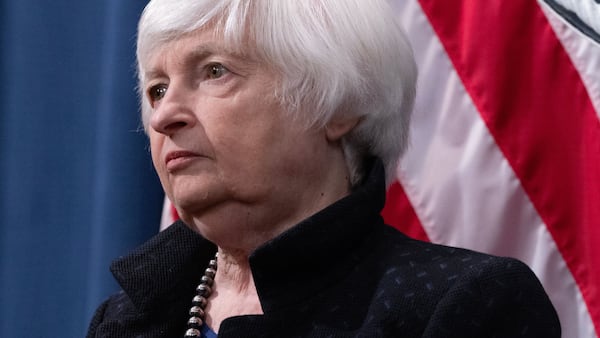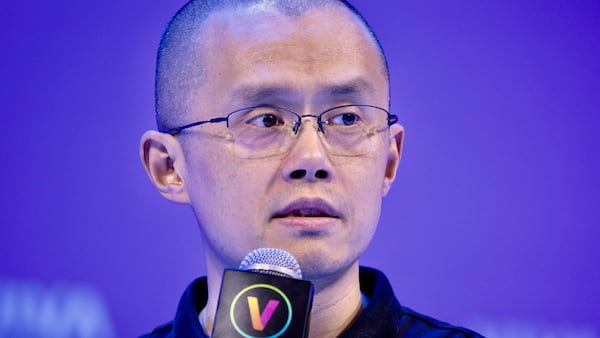- Teng must juggle fallout from the guilty pleas by Binance and founder Changpeng Zhao.
- A key task will be repairing the exchange's credibility as institutional investors embrace Bitcoin.
- Teng is expected to draw on decades of experience in market regulation to reposition Binance.
Earlier this month, Richard Teng stepped onto the stage to open Binance Blockchain Week in Istanbul instead of Changpeng “CZ” Zhao.
It was a sign of things to come.
Teng, then the head of regional markets at the world’s top crypto exchange, wore a smart blazer and a pair of washed blue jeans.
“To the moon!” he said as he took a selfie with the crowd.
New role
His uplifting message was striking given that at the same time Binance was preparing to plead guilty to US federal charges of money laundering, and violating federal banking and securities laws, plus pay a record $4.3 billion in penalties.
Moreover, Zhao, its controversial founder, was also poised to plead guilty to a felony violation of US banking law and resign as CEO.
Yet Teng, a product of the Wharton School’s executive leadership programme, was ready to slip into a new role that will require him to manage a crypto exchange that controls 40% of the market.
Teng, as Zhao’s successor, is also now the face of what may be the most important enterprise in the $1.5 trillion crypto market.
On his to-do list, Teng must transform the lawless culture at Binance if he’s to make the company a worthy player in the financial establishment.
‘Teng coming from a regulatory perspective, may not speak crypto as well as CZ.’
— Danny Chong
While he spent most of his career focusing on the regulation of the capital markets, Teng’s appointment as Binance CEO was long foretold, say people who closely follow the company.
“I feel that Teng was always pre-positioned for CEO,” Danny Chong, co-founder of Tranchess DeFi Protocol and former banker, told DL News in an interview.
“What has happened with the settlement is perhaps an accelerated timeline for this to take place.”
Legal morass
Now Teng must deal with the fallout from Binance’s extraordinary legal morass in the US and find a way to assuage regulatory concerns in other parts of the world.
For starters, he’ll have to manage the appointment of an independent monitor which will scrutinise the company’s anti-money laundering and anti-terror financing practices and systems for the next five years.
Then there’s the task of rebuilding credibility for an exchange that relies on institutional investors for big chunks of its business.
Zhao looms
Meanwhile, Zhao’s presence still looms. Even though the founder is awaiting sentencing in February, he remains a majority stakeholder in Binance.
Zhao’s partner and Binance co-founder Yi He also appears to be continuing to lead the exchange’s marketing, branding, and strategy efforts, according to the company’s website.
Teng will also have to manage the company’s defence as it confronts a lawsuit by the Securities and Exchange Commission alleging it operated its US operations illegally.
Market analysts question whether Binance will be able to maintain its dominance and take advantage of rising institutional money flowing into crypto.
With Bitcoin exchange-traded funds expected to be approved in the US, traditional businesses and institutions may dramatically increase their use of crypto, Chong said, bringing a fresh influx into marketplace.
“[Teng], coming from a regulatory perspective, may not speak crypto as well as CZ,” Chong said. “But because of his capacity and experience, he will be the person to be improving the liquidity and volumes of Binance” as institutional investors come in.
That may be easier said than done. Professional traders, hedge funds, and asset managers do not take kindly to doing business with market players with chequered regulatory records let alone guilty pleas and record penalties.
“I intend to use everything I’ve learned over the past three decades of financial services and regulatory experience” to guide the Binance team, Teng wrote on X as he accepted his new role.
Binance declined to provide an interview with Teng.
Problem solver
If anyone is well suited for Binance’s regulatory tests it may be Teng. People who know him say he is a down-to-earth and pragmatic problem solver.
After studying accounting at Nanyang Technological University in Singapore and earning a master’s degree in applied finance in Australia, he spent 20 years in Singapore’s vibrant capital markets.
His first post was a director of corporate finance at the Monetary Authority of Singapore, the city-state’s central bank.
From 2007 to 2015, Teng served as the chief regulatory officer at SGX, a Singapore-based group that operates securities markets.
He then landed the CEO’s job at Abu Dhabi Global Market, the United Arab Emirates’ financial hub, and led the development of its financial regulatory and fintech initiatives.
During his six years there, Teng also helped build a framework for digital asset exchanges, according to the ADGM.
While Teng’s career track appears conservative compared to Zhao’s, his work with ADGM demonstrates that he has a taste for “pioneering” projects, said Danny Lim, core contributor at MarginX decentralised exchange, in an interview.
These skills proved valuable at Binance. Teng joined the company in 2021 as the CEO of its Singapore unit as it sought a licence from the monetary authority. The operation withdrew its application in December that year, and closed operations in the city-state.
“Singapore would never have been the final destination for him,” Chong said.
‘Internally, there was already confidence or plans that he could lead the company.’
— Danny Chong
Teng then became the regional head of the Middle East and North Africa, and was posted in the UAE at a time when it became an increasingly important hub for Binance.
Soon after, Teng took over supervision of Europe, a region with the most advanced and complex regulatory structures for crypto firms.
Asia followed suit before Teng became head of regional markets.
Teng rapidly rose through the ranks in Binance over the next two years. “Internally, there was already confidence or plans that he could lead the company,” Chong said.
When the historic bull market crashed in the second quarter of 2022, regulatory pressure started to mount on Binance and the rest of the industry.
New corporate model
Since launching Binance in 2017, Zhao had evangelised for a new breed of corporate model predicated on blockchain’s decentralised nature.
While traditional financial firms were based in a specific city with all the accoutrements of a workplace, Binance shunned a headquarters and many of its employees operated out of shared workspaces.
Notably, Zhao fostered a lawless approach to compliance with regulatory requirements, according to court papers in the US.
After FTX founder Sam Bankman-Fried was indicted in connection with the collapse of his exchange in November 2022, Binance changed its strategy.
It hired a corps of former regulatory officials from US agencies and Zhao pledged to obey the rules.
“When Binance first launched, it did not have compliance controls adequate for the company that it was quickly becoming, and it should have,” a Binance spokesperson told DL News this month. “Binance made misguided decisions along the way. Binance takes responsibility for this past chapter.”
But it had a raft of problems to deal with.
This year, the firm came under investigation in Canada, France, Australia, and Belgium.
The US Commodity Futures Commission and the SEC each sued the company, and Zhao, for allegedly running its operations unlawfully.
Binance and Zhao have denied the allegations in the regulatory civil actions.
Historical issues
From the get-go, Teng was deemed part of the company’s response to these pressures. “Richard Teng was hired two years ago to help Binance mature and move past these historical issues,” said the Binance spokesperson.
Even so, amid news reports US prosecutors were pursuing a criminal investigation of the company, there was an exodus of executives from the company.
Hon Ng quit as general counsel at Binance this year, as did Marcus Bacchi-Howard, a onetime Morgan Stanley investment banker who was a vice president for institutional account management. Stéphanie Cabossioras, former French regulator, also left her position as director of Binance France.
“For some of these ex-regulators or ex-bankers — they just couldn’t click with the culture,” said Lim.
But Teng stayed.
‘Regulation should not stand in the way, but play an enabling role.’
— Richard Teng
Now as CEO, Teng will need to accommodate both the degen, tech-focused culture of crypto natives, and maintain close relationships with white-collar regulators and compliance departments at institutional investment firms.
“He’s the guy who has learned to walk on a tightrope. And he walks on it well enough,” a person close to Binance operations, who requested to remain unnamed, told DL News.
In a sign of Binance’s new ambitions, Teng shared the stage with bigwigs of the old financial and regulation world in Stockholm in April.
Joining the establishment
The event was a high-profile, closed-door gathering organised by Eurofi on economic and financial policy.
Eurofi tends to attract the most powerful officials from governments and institutions, leading discussions that reverberate into the rules for the European Union’s financial services industry.
Teng blended into the scene in a way that the more iconoclastic Zhao may not have.
On his panel were executives from the UK’s Treasury, Swiss regulatory authority, the Bank of International Settlements as well as board members of SIX Group and BNP Paribas, France’s top bank.
“Regulation should not stand in the way but play an enabling role,” Teng wrote in an article accompanying the panel. “Binance is committed to play its part. We have a responsibility to lead by example.”
Inbar Preiss is DL News’ Brussels correspondent. Have a tip about crypto regulation in the European Union? Contact the author at inbar@dlnews.com.
